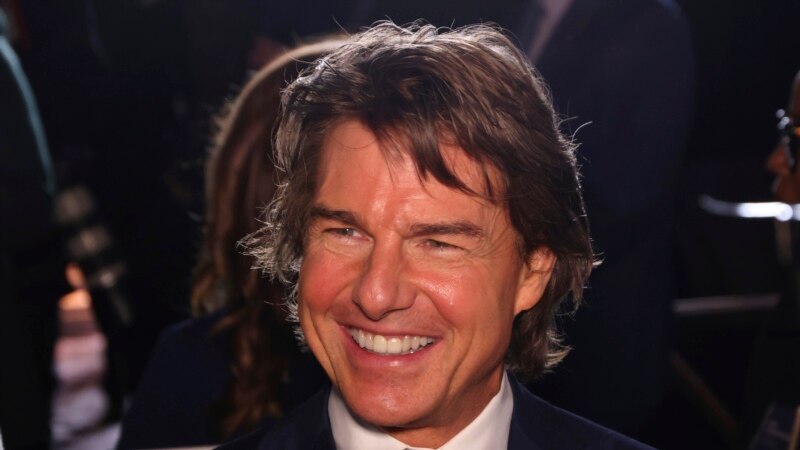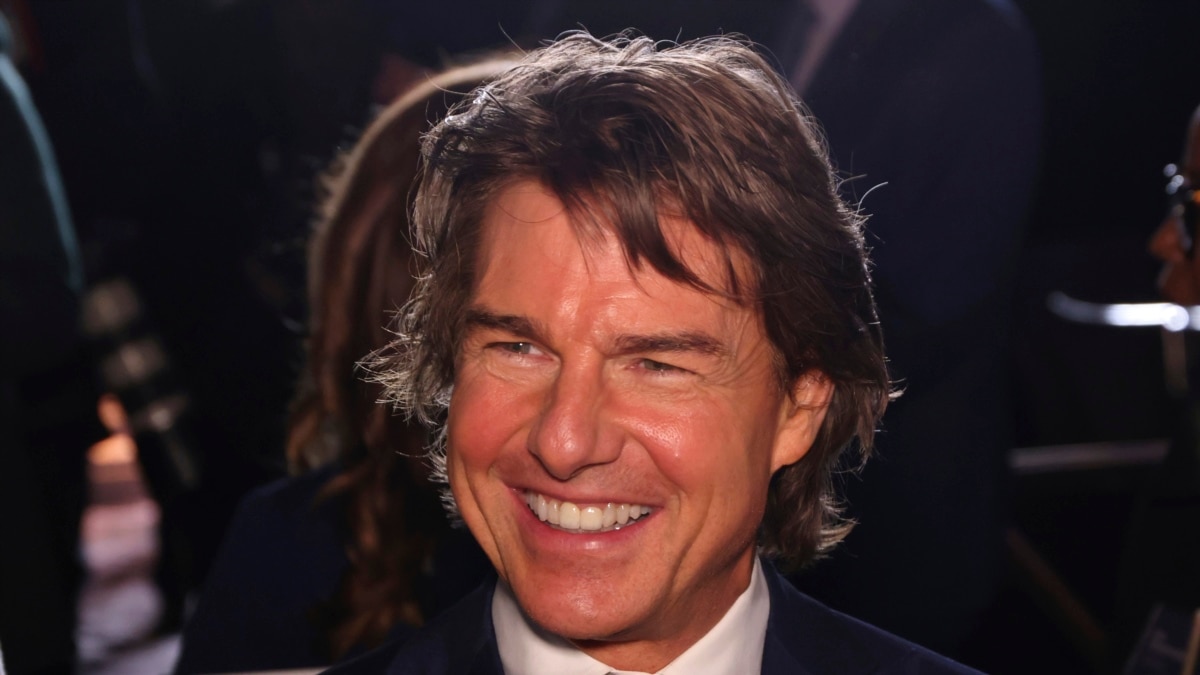This website uses cookies so that we can provide you with the best user experience possible. Cookie information is stored in your browser and performs functions such as recognising you when you return to our website and helping our team to understand which sections of the website you find most interesting and useful.


BEVERLY HILLS, Calif. —
Tom Cruise was honored for his nearly three decades of work as a producer, and “ Everything Everywhere All at Once ” solidified its status as the frontrunner for the best picture Oscar by taking the top prize at Saturday night's Producers Guild of America Awards.
“We love you! We love you!” another Oscar favorite and one of the film's stars, Ke Huy Quan, shouted gleefully from the stage as Jonathan Wang and the other producers of the multiversal dramedy accepted the award for best theatrical motion picture.
The award has proven to be perhaps the best indicator for what will win the top honor at the Oscars, with four of the past five and 11 of the past 14 PGA winners going on to win best picture.
PGA wins by “ CODA ” last year and “ Nomadland ” in 2021 set each apart as frontrunners before winning best picture.
The strong possibility of a big night at Sunday's Screen Actors Guild Awards could further mark “Everything Everywhere” as the film to beat at the March 12 Academy Awards.
Cruise the actor caused a stir inside and outside with his presence at the show at the Beverly Hilton in Beverly Hills, California, but his producing career beginning in 1996 with “Mission: Impossible" earned him the David O. Selznick Award at the PGAs, a life achievement honor previously bestowed on Steven Spielberg, Kevin Feige, Mary Parent and Brian Grazer.
“My whole life I wanted to make movies," said Cruise, wearing a tuxedo with his hair grown out to the length he wore it in “Mission: Impossible 2." "I wanted to travel the world, and have adventure."
Cruise talked about making his film debut in 1981's “Taps” at age 18 and how producer Stanley Jaffe let him in on every part of the process.
“I was certain this was something I wanted to do for the rest of my life," he said.
Cruise thanked Jerry Bruckheimer, producer of the original 1986 “Top Gun” and his producing partner on last year's “Top Gun: Maverick,” which also was nominated for the top PGA award and is up for the best picture Oscar.
“You opened the door for me,” Cruise told Bruckheimer. “You welcomed me in and I will be grateful forever.”
Since the first “Mission: Impossible,” Cruise has regularly been a producer on the films in which he has starred, including “Vanilla Sky,” “The Last Samurai," “Jack Reacher" and the other five films in the “Mission: Impossible” franchise.
He paid tribute in his acceptance to many other mentors and partners including Spielberg and former Paramount CEO Sherry Lansing, who presented the award.
“You’ve all enabled me the adventurous life that I wanted,” he said.
Cruise gave a closing shout-out to “all the audiences, for whom I work first and foremost, thank you for letting me entertain you.”
Other movies honored by the PGA included “Navalny,” which won for best documentary feature, “Guillermo del Toro's Pinocchio,” which took best animated film, and “Till,” which won the Stanley Kramer Award honoring a production or producer that illuminates and raises public awareness of important social issues.
In the PGA’s television categories, “The Bear” won for best comedy, “The White Lotus” won for best drama, “Lizzo’s Watch Out For The Big Grrrls” won for best reality or competition series, “Stanley Tucci: Searching for Italy” won for non-fiction series, “The Dropout” won best limited series and “Weird: The Al Yankovic Story” won best TV movie.
Mindy Kaling received the Norman Lear Achievement Award in Television for her work producing shows including “The Mindy Project,” “The Sex Lives of College Girls,” “Never Have I Ever,” “Velma” and “The Office.”
“I’m a child of immigrants and that unexpectedly became my secret weapon,” Kaling said.
B.J. Novak, her former “Office” co-writer and co-star, presented Kaling with the award, saying she “cared about characters other people hadn’t cared about enough to put on TV, and they cared about things that other people on TV hadn’t cared about."



 Africana55 Radio
Africana55 Radio 
